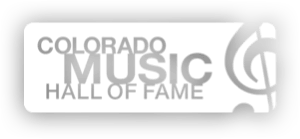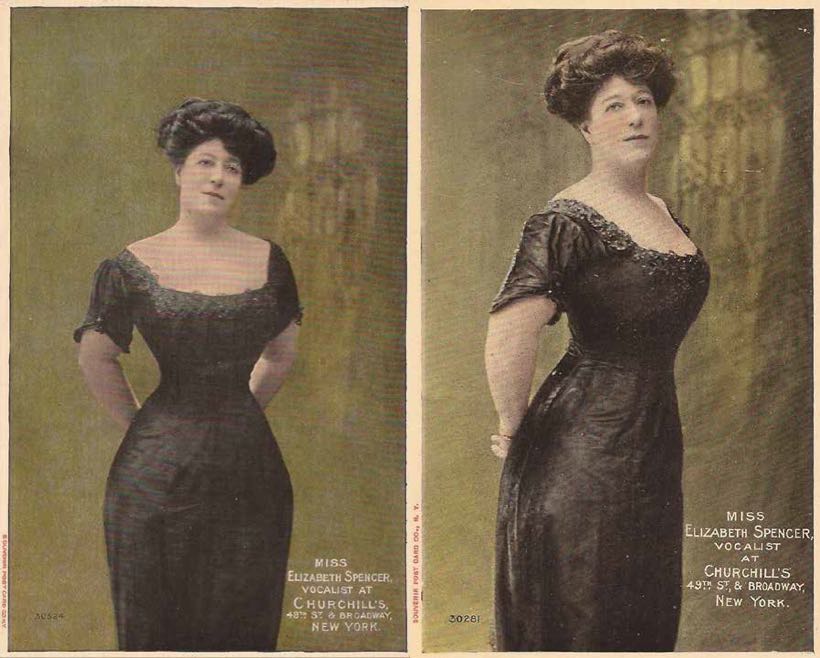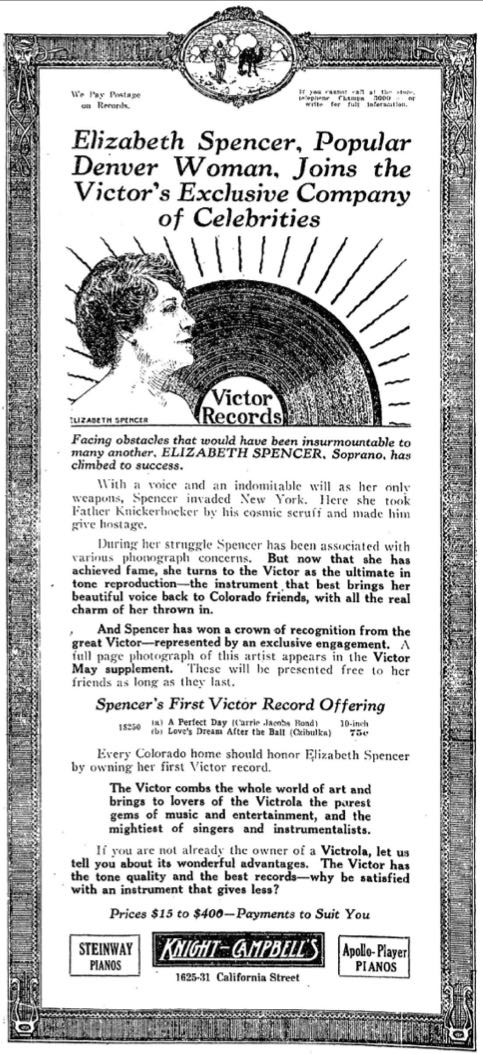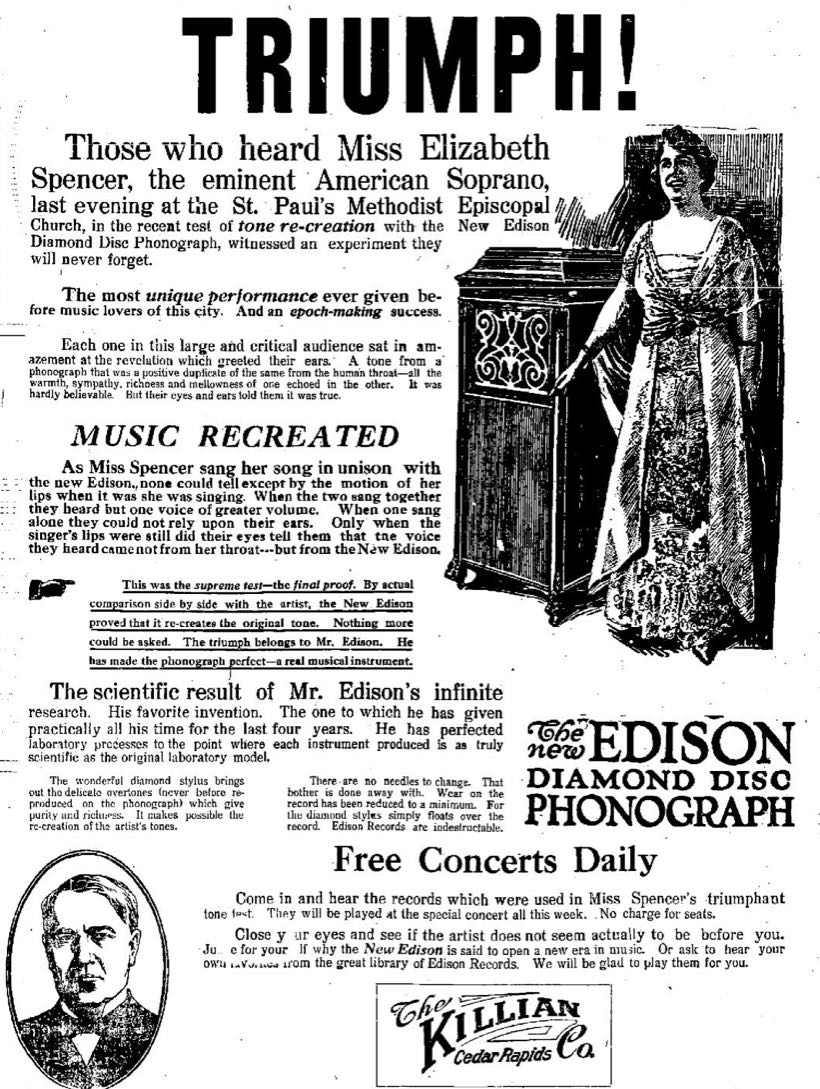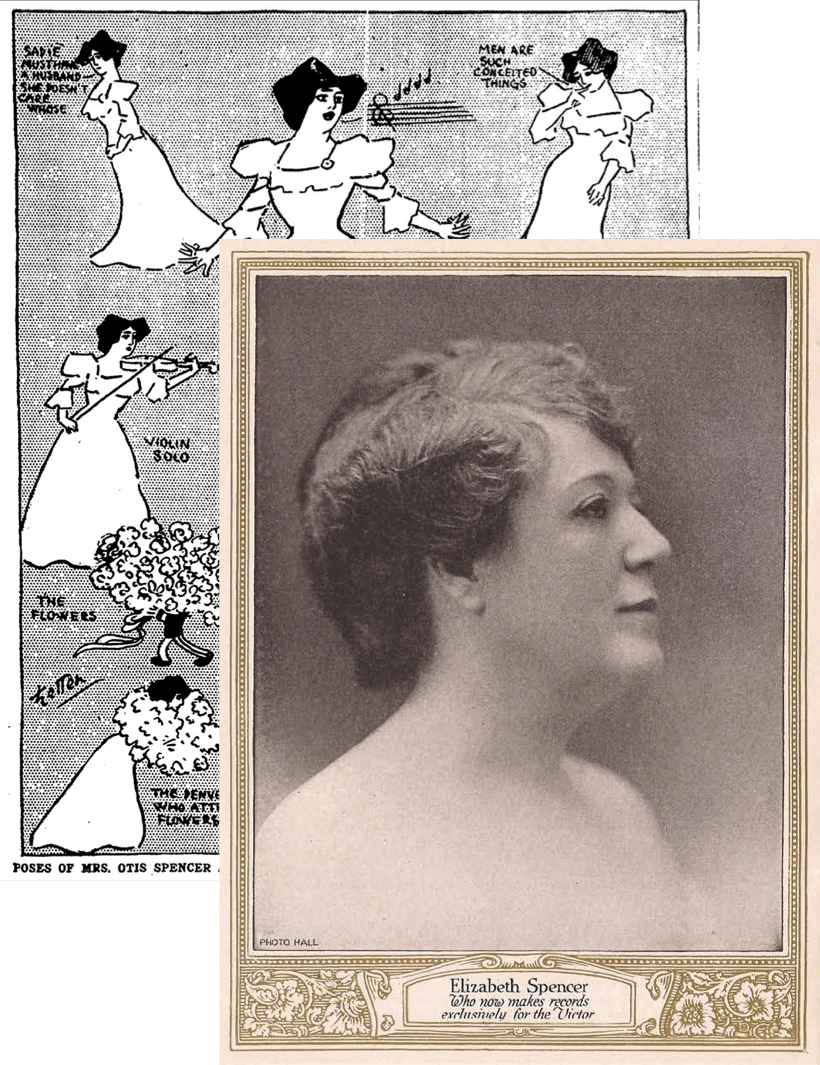She graduated from St. Mary’s Academy in Englewood, Colorado and, after an extensive European tour, married Otis Spencer, an attorney. A recognized society woman, Spencer sang in churches, concerts, clubs, parties and amateur theatricals.
She got her big break in 1905, performing a successful solo act at the local Orpheum Theater, her professional debut in a major vaudeville house. Her second engagement, a one-act sketch, displayed her acting abilities and the experience led to roles in Broadway road companies. By 1910 she was residing in New York City and making her first recordings. Signing an exclusive contract with inventor and businessman Thomas Edison’s company, Spencer’s “dramatic soprano” was heard on numerous studio recordings, participating in solos, duets, trios, quartets and choruses. One of these groups was known as the Homestead Trio which consisted of Spencer and two other female vocalists, Amy Ellerman and Betsy Lane Shepherd.
